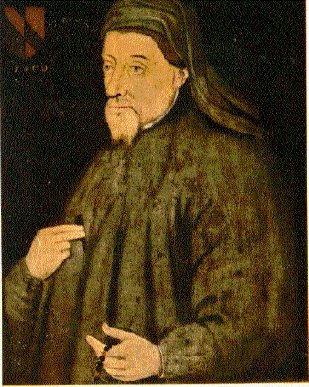England is the birthplace of several famous authors and literary works, which are important representatives of the whole English literature. With the passage of time, several styles, authors and approaches have influenced the literature of England.
The oldest evidences of literary
life were oral tales and stories that were passed down from an older generation
to the newest. Then, the man of the Middle Ages began to write these works in
Old English and in poetic prose, so the texts could be recited too.
The first Anglo-Saxons that inhabit
England were greatly influenced by Germanic tales, stories and poems. The main
characteristic of their literature was the use of alliteration (the occurrence
of the same letter or sound at the beginning of adjacent or closely connected
words).
 The Middle English was influenced by
French, Celtic and Latin literature, and it was the most important language of
literature until the 1470’s. By this period, a greater number of people had
access to literature because the production was not oral, but written. The
father of English literature is Geoffrey Chaucer (1343-1400); he was an author; astronomer, alchemist,
philosopher, and he also had an active participation in the civil service as a
courtier and diplomat. His contributions to literature were several types of
rhymes and the iambic pentameter line. Also, his greatest works were narrative
poetry, where we can see The Canterbury
Tales and Troilus and Criseyde.
Chaucer used English as never has been tried before, leaving a great legacy in
English literature.
The Middle English was influenced by
French, Celtic and Latin literature, and it was the most important language of
literature until the 1470’s. By this period, a greater number of people had
access to literature because the production was not oral, but written. The
father of English literature is Geoffrey Chaucer (1343-1400); he was an author; astronomer, alchemist,
philosopher, and he also had an active participation in the civil service as a
courtier and diplomat. His contributions to literature were several types of
rhymes and the iambic pentameter line. Also, his greatest works were narrative
poetry, where we can see The Canterbury
Tales and Troilus and Criseyde.
Chaucer used English as never has been tried before, leaving a great legacy in
English literature.
In the 15th Century,
known as The Renaissance, the literature took a vernacular tendency, also
called the English of the common people. The literature was not seen as a
simple form of entertainment, but a greater number of people could access to
literature.
One of the movements that were part
of the Renaissance was the Elizabethan literature. It was created during the
reign of Elizabeth I of England. The English literature had an important
growth, marked by a stronger energy and originality. Some of the most famous authors
were William Shakespeare, Christopher Marlowe, Edmund Spenser and Philip
Sidney.

William Shakespeare could be known as the most known author from this period. Shakespeare was an actor, playwright and poet, and his most famous plays include Hamlet, A Midsummer Night’s Dream, Romeo and Juliet, The Tempest and Macbeth.
The main characteristic of the 18th century was the reflection of the tendency of the society to study economy,
science, religion, politics, etc. All the individuals found a chance to question
their beliefs. Showing emotions was not the main objective, therefore, several
ballads and tales were remake.
A lot of styles and movements
appeared the next decades, including Romanticism, Victorianism and Modernism.
They left behind them important footprints on literary English History, being
the major authors Jane Austen, Edward Bulwer-Lytton, Lewis Carroll, Wilkie
Collins, Charles Darwin, Charles Dickens, Adelaide Ann Procter and Robert Louis
Stevenson.
Jane Austen (1775-1817)
Edward Bulwer-Lytton(1803-1873)
Charles Darwin (1809- 1882)
Twentieth Century
The literature of the early 20th
century was a fusion of the Romantic Movement with political and aesthetic
concerns. An important fact is that the most important writers of this period
were not British, but Irish, Welsh, American and Polish writers. New kind of
writers were born, “The imagists” (any of a
group of American and English poets whose poetic program was formulated about
1912 by Ezra Pound, in revolt against the careless thinking and Romantic
optimism he saw prevailing), as Hilda Doolittle, D.H Lawrence and
Richard Aldington.
Erza Pound (1885- 1972)
Erza Pound (1885- 1972)
World War I affected deeply the
artistic movements and styles of England. The literature was very difficult,
antiromanticism, it was looking for a perfect description of the war and its
effects, and it influenced poetry during a long period of time. The major
exponents were Wilfred Owen, Ford Madox and Isaac Rosenberg.
Edwardian Period
The Edwardian period birthed a considerable number of literary movements
and styles: The Lost Generation,
Futurism and Imagism. The Lost Generation includes all the expatriate American
writers, who lived during the First World War and whose literary works reflects
a deep disillusionment with their society. Futurism refers to the abandonment
of typical and conventional syntax and the bizarre use of images drawn from the
era of technology. Imagism describes a movement that took haiku and free verse.
One of its representatives was Ezra Pound.
Playwrights as George Bernard transformed theatre into a place for debate
about issues of this period: the morality of war, politic, the importance of
marriage and family and female emancipation. Some authors as Edward Morgan
Forster explored controversial themes such as repression, philistinism of the
middle classes and insensitivity. Contrary to Forster, Herbert George expressed
the positive conviction of people. They thought that technology and science
were going to change the world.
Writers as Rudyard Kipling and Thomas Hardy preferred to revive old
literary forms such as ballad, satire, essay, fantasy and narrative poem,
because they believed that they preserved traditional perceptions and
sensibilities.
Futurism
This movement began in 1909
by the Italian intellectual Filippo Tommaso Marinetti. The main characteristic
of futurist poetry is the combinations of images and its hyper-conciseness, its
speed and noise and he called for the abolition of syntax in poetry.
Filippo Tommaso Marinetti (1876-1944)
 Futurism supported
anarchist images and analogies, also called immaginazione
senza fili. They reflected the birth of the industrial technology,
nationalism and the world of weapons. Marinetti trumpeted the movement of
“contempt of woman.”
Futurism supported
anarchist images and analogies, also called immaginazione
senza fili. They reflected the birth of the industrial technology,
nationalism and the world of weapons. Marinetti trumpeted the movement of
“contempt of woman.”
Dada Movement
Dada movement was born in 1916 in Zurich,
Switzerland, as a response amongst World War I, the past, progress. It supports
spontaneity. Some authors saw the romantic sight, like Rupert Brooke and others
reflected the cruel reality and brutality of the war like Wilfred Owen.
Rupert Brooke (1887-1915)
Wilfred Owen(1883-1918)
Modernism
When we
talk about Modernism, we are talking about a movement where the traditional
view of poetry and verse is broken. The writers of this era were driven by a
desire to overturn traditional styles of representation and express the new
sensibilities of their period. They made an experiment with literary form and
expression, adhering to the modernist maxim to “Make it new.”
Post Modernism
Post modernism appeared after World
War II, against Enlightenment ideas in Modernist literature (Enlightenment is a
European intellectual movement emphasizing reason and individualism rather than
traditions). Postmodern literature tends not to finish with tied-up ending. The
authors of this movement question distinctions between low and high cultures
through the use of pastiche, which is an
artistic work in a style that imitates that of another work, artist, or period.
If you want to learn about William Shakespeare visit:
http://www.shakespeare-online.com/
If you want to know more about the literature of England visit:
http://www.england.org.za/literature-and-authors.php#.UGIlIrKTvLw
If you want to learn about William Shakespeare visit:
http://www.shakespeare-online.com/
If you want to know more about the literature of England visit:
http://www.england.org.za/literature-and-authors.php#.UGIlIrKTvLw








No hay comentarios:
Publicar un comentario